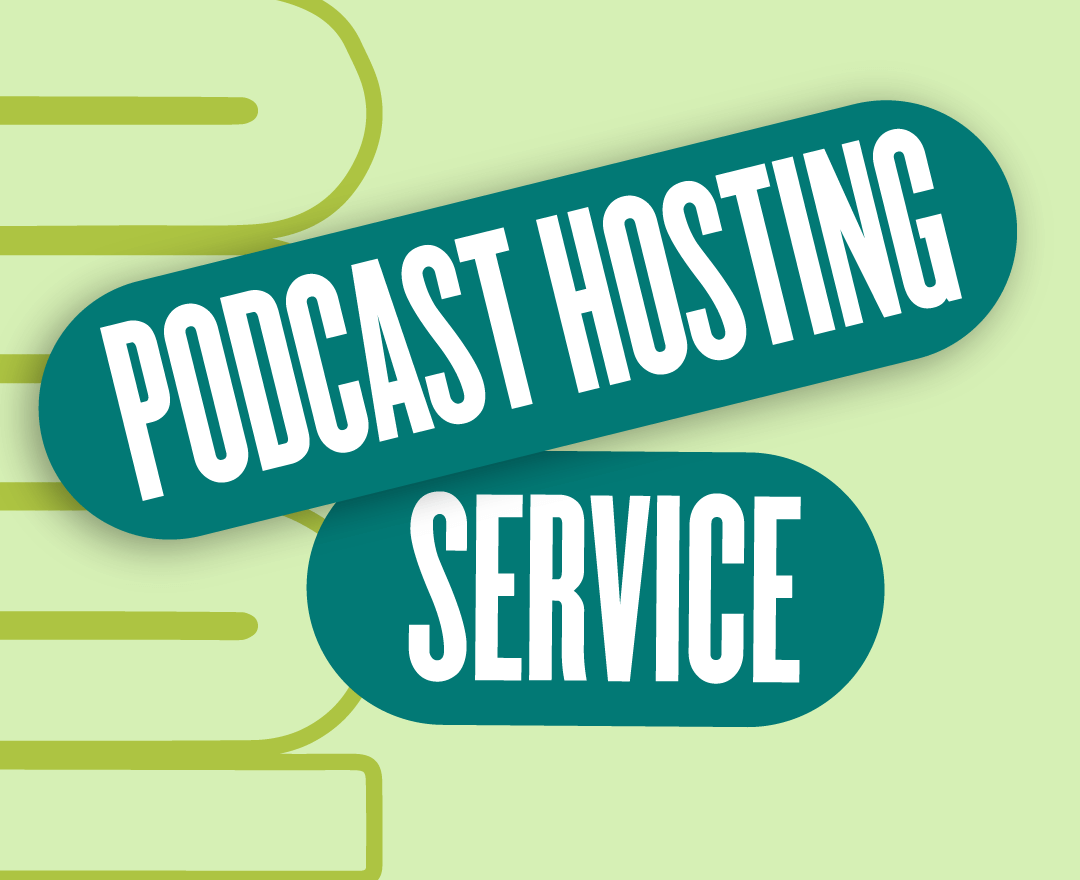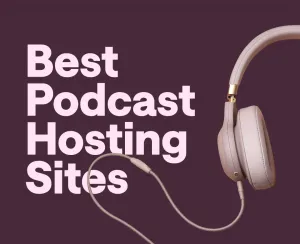The muse often arrives when you least anticipate it. Perhaps while you're driving home, out of nowhere, it strikes: an unexpected surge of thoughts flows in, and you're absolutely certain that these ideas are fantastic content for your upcoming podcast.
So you record it on your phone, trim it with a simple podcast audio editing software, and then…you’re stuck. It turns out that sharing your story with the world is a little more complicated than you thought it would be. You need a podcast hosting service, but you have no idea what to look for or who to use.
That’s why you’re here, so don’t worry–we'll provide you with all the essential information regarding podcast hosting services and the process of selecting the right one.
But before we start listing the criteria of a good podcast hosting service, let’s first understand what it is.
What is a podcast hosting service?
The podcast host is the place where you save your audio files for later, distributing them as your podcast episode. Here you get your podcast RSS feeds, which you later need to submit to Apple Podcasts or other podcast directories of your choice. You might wonder, though: what is an RSS feed?
It is just a listing of all your podcast episodes. RSS stands for “Rich Site Syndication.” In other words, it is a list to which people subscribe for getting updates on specific online content. If you want a more technical definition, it is a web feed formatted in XML that defines your podcast’s information.
Besides providing your podcast’s RSS feeds, podcast hosting platforms also give you access to web players, analytics, some scheduling tools, and other useful features. All of these make it easier to publish and track your podcast’s success.
Some podcast hosting services will also allow you to integrate your ad networks, share your podcast on social media, and other similar distribution options.
Why do you need a podcast hosting service?
Unless your podcast is just a student project for a random class, you probably will be creating pretty heavy media files, and you need a decent place to store them all, and, of course, share them. One of the ways you could do it is by creating a website using Wordpress or another low code platform where your listeners would come for your episodes.
In that case, though, you’ll need to ensure that your website has sufficient bandwidth capability and storage. Otherwise, all those files will affect your load time or even cause your site to crash.
That’s why most podcasters look for a different solution, and that’s exactly when podcast hosting platforms come in handy. They provide you with a large enough space to store all your files no matter how long you need them. And if you choose the right hosting platform, you might even get assistance with the distribution of your show, allowing you to find and reach a larger podcast community.
What are the best podcast hosting services?
Here are our picks for the top hosting platforms for new podcasts:
Podcastle
As part of the Podcastle suite, which includes the Recording Studio, Audio Editor, and Video Editor, the Hosting Hub offers a comprehensive solution for podcasters to publish their shows and episodes seamlessly, all within the platform.
Top Feature: The ability to serve as an RSS feed and offer dedicated landing pages simplifies podcast management and branding, enhancing audience accessibility and engagement.
Buzzsprout
A user-friendly platform that offers detailed analytics, making it an ideal choice for beginners and those looking for insights into their podcast performance.
Top Feature: Its intuitive interface ensures a smooth experience, especially for newcomers to podcasting.
Libsyn
A veteran in the podcasting scene, Libsyn provides reliable distribution services and a well-established network for syndication.
Top Feature: Its longstanding reputation and broad reach across podcast platforms make it a trusted option for creators.
Transistor
With versatile features and advanced analytics, Transistor caters to podcasters seeking in-depth insights into their audience engagement and content performance.
Top Feature: The robust analytics tools empower creators with comprehensive data for informed decision-making.
Podbean
Offering an all-in-one solution, Podbean stands out for its monetization options, enabling podcasters to generate revenue from their content.
Top Feature: Integrated monetization tools provide creators with avenues to earn from their podcast efforts.
Anchor
A free and user-friendly platform, Anchor simplifies the podcast creation and distribution process, making it accessible for all podcast enthusiasts.
Top Feature: Its cost-free approach and straightforward setup make podcasting more accessible to a wider audience.
Megaphone
A premium service, Megaphone focuses on targeted ads and monetization strategies, helping creators maximize their podcast revenue potential.
Top Feature: The platform's ability to deliver tailored advertisements enhances revenue generation opportunities.
Simplecast
Geared with an array of features, Simplecast supports podcast optimization by offering tools to enhance the overall podcasting experience.
Top Feature: Its comprehensive feature set caters to creators aiming to refine and enhance their podcasts.
Blubrry
Standing out with its seamless WordPress integration, Blubrry simplifies podcasting for users with existing WordPress websites.
Top Feature: The platform's compatibility with WordPress streamlines podcast setup for those familiar with the WordPress ecosystem.
Castos
Designed with a focus on WordPress users, Castos offers unlimited storage for podcast content, making it suitable for creators with extensive libraries.
Top Feature: The unlimited storage feature accommodates creators producing a high volume of podcast episodes.








